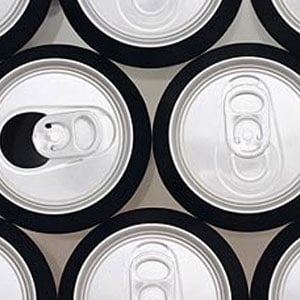
I have read some amazing “facts” over the years about what could be causing the obesity epidemic, but every now and then along comes a total whopper that shakes my belief in humanity. The latest one is Coca-Cola’s exercise in rearranging the facts to suit them.
According to recent reports in the media, Coca-Cola are trying to shift the blame for the obesity tsunami from poor diet to a lack of exercise. To achieve their goal, this soft drink mega-company is donating millions of dollars to the Global Energy Balance Network (GEBN), a new non-profit organisation which bases its research on the paradigm of “ Energy IN = Energy OUT”.
Losing sight of a balanced diet
Now while there is ample proof that the abovementioned equation does actually apply in many cases, this does not remove the responsibility of the scientific fraternity from adding that “Energy IN” should be derived from a balanced diet!
Read: Rules for a balanced diet
To try and present the public with a kind of magic trick and to persuade the world that even highly suspect diets that are laced with high-kilojoule foods and drinks that contribute very little to a balanced food intake, will not contribute to weight gain provided you do sufficient exercise, is scam science.
Sleight of hand!
According to Steven N. Blair, the vice president of the Global Energy Balance Network, at present practically all the blame for obesity is heaped on eating – eating too much, eating too many fast foods and drinking too many sugary drinks. Blair is then quoted as saying that “there’s really no compelling evidence that that in fact, is the cause”.
After half a century of research, studies that implicate excessive food intake as the major reason for obesity, the magicians at Coca-Cola and GEBN are now attempting to make this plump rabbit disappear back into its hat!
Read: Would you stop eating out to lose weight?
They maintain that excess energy intake should not be given all the blame and if the energy balance approach is used, then exercise also needs to be examined and encouraged. Now, I am very enthusiastic about increasing energy output when people want to lose weight, but encouraging physical activity does not mean that we should ignore the reduction of energy intake. Encouraging the population to do so is a smoke and mirrors act!
Examples of weight loss
Basically it is necessary to reduce one’s energy intake by about 500 kcal or 2000 kJ per day and to increase one’s energy output by doing approximately 30 minutes of aerobic exercise daily.
Examples of the effectiveness of these two lifestyle changes when it comes to promoting weight loss include the Biggest Loser TV shows, the Survivor series and endless endurance sports events (cycling, road running, marathons, and long-distance swims).
In the case of the TV shows, the participants reduced their energy intake and increased their energy output drastically, and their weight just kept on melting away. The athletes increased their activity levels to such an extent that they far exceeded their energy intake and steadily lost weight.
Read: Is 'slow and steady' weight loss really the best approach?
Many myths have been propagated about obesity and why the human race is at present plagued by such scary statistics, but no amount of funding will be able to reverse the idea that ingesting litres of sugar-sweetened cold drinks will not lead to weight gain.
The basic principles of weight loss remain the same and can be achieved by making adjustments in energy intake and energy output. If weight loss can also be linked with eating a well-balanced diet that is nutrient dense (not just energy dense), we will achieve the ideal situation without needing to spend millions of dollars to create illusions and dupe the public.
Read more:
UK considers tax on sugary beverages
Obesity in SA: where will it end?
Food addiction: myth or reality?
References:
- GEBN (2015). Global Energy Balance Network. Energy Balance Basics.
- Mohdin A (2015).Coca-Cola is funding controversial research that claims bad diets don’t cause obesity. ILF Science, published on 11 August 2015.




 Publications
Publications
 Partners
Partners










